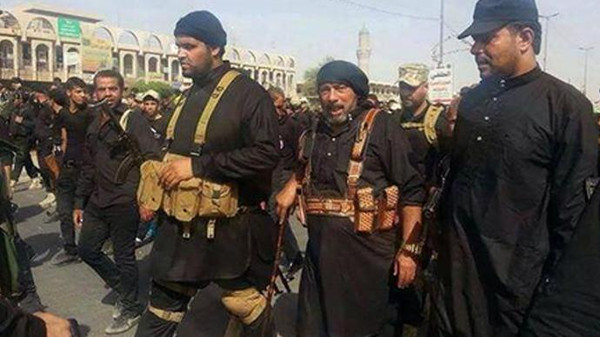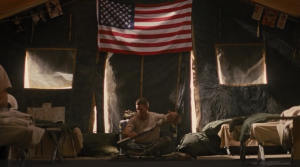The most harrowing scene in American Sniper involves an Iraqi character nicknamed “The Butcher” torturing and executing an Iraqi child by taking a power drill to his skull. The scene lends credibility to the narrative of Chris Kyle as basically a hero facing villains. In the film, “The Butcher” is a lieutenant of Abu Musab al-Zarqawi, the Sunni insurgent, terrorist, and founder of Al Qaeda in Iraq, which later became ISIS.
However, in the Iraq of the real world, power drilling human heads is more of a predilection, not of Sunni insurgents, but of their enemies in the Shiite militias.

For one, there is the warlord Abu Deraa, nicknamed “the Shiite Zarqawi,” who according to the UK’s Sunday Times (emphasis added):
“…is thought to be responsible for the murder of thousands of civilians, mostly Sunnis, and is said to take personal delight in killing — sometimes with a bullet to the head, sometimes by driving a drill into the skulls of his victims. On other occasions, Iraqis say, he gives them a choice of being shot or battered to death with concrete building blocks.”
AQI/ISIS falsely claimed to have killed him in 2006, but after years of hiding in Iran, he recently reemerged in Baghdad once again leading a militia.

Then there is Hadi al-Amiri, head of the Iran-backed Badr Brigade. According to The Washington Post, “A leaked 2009 State Department cable said sources had indicated that Amiri may have personally ordered attacks on up to 2,000 Sunnis.” The Post continues (emphasis added):
“…in 2005 and 2006, sectarian killings in Iraq surged as Badr death squads worked under the cloak of the police force.
The 2009 State Department cable, referring to that era, said that ‘one of [Amiri’s] preferred methods of killing allegedly involved using a power drill to pierce the skulls of his adversaries.‘”
Electric Drill Amiri is now, according to the Post, effectively the head of security in Iraq:
“Iraq’s parliament voted Saturday to put an affiliate of an Iranian-backed paramilitary group in charge of a key security ministry, a move that could strike a serious blow to efforts to unite Sunnis and Shiites to wrest back their country from Islamist extremists.
The new interior minister is Mohammed Ghabban, a little-known Shiite politician with the Badr Organization. But there is little doubt that Hadi al-Amiri, head of the party and its military wing, will wield the real power in the ministry.”
Both of these Iran-sponsored real-life head-drilling “butchers” of Iraq rose to power thanks to the US invasion and occupation of Iraq, and are now commanding forces either in the US-backed Iraqi government, or under its protection, fighting alongside the US military against the now ISIS-led Sunni insurgency. At the end of the day, the American Sniper was not the enemy of the Iraqi Butchers, but their benefactor.
As radio host Scott Horton never tires reminding his listeners, the chief role of the American troops in Iraq was to fight a bloody civil war on behalf of the Shiite side and to install Iran-backed Shiite militias in power. These militias used death squads to ethnically cleanse Baghdad and other cities of Sunnis, and, as Will Grigg never tires reminding his readers, imposed a Sharia-compliant constitution over a once-secular country. This Shiite jihad was, in effect, Chris Kyle’s true mission, for which millions of American Christians now lionize him.







